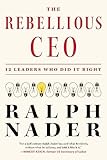If the bee disappeared off the surface of the globe, then man would only have four years of life left.
— Recent bee keeper protest slogan.
Dressed in camouflage,
Like soldiers,
We hunted bumblebees in the back yard.
We would chase them
From the cement basement lip of the little red house
where my parents tried to grow strawberries,
all the way across the clover patch that lined the driveway.
I guess it was only a few adult steps, really.
But to us it seemed like a wide stretch of terrain:
A battlefield occupied by the enemy.
My best-friend Andrew and I—we shared the very same birthday, us two—
We’d gather up rocks and sticks that felt like logs
—like battering rams in our child hands–
And we’d gather our giddy kid courage, hiding behind the gutter-pipe:
a commando team on a mission
to kill the bees.
We’d count to Three and then we’d yell “Charge!” and aim as we ran and we’d throw our load clumsy in the general direction of the bee-speckled clover, our sticks and stone bombardment tumbling into the air buzzing with adrenaline and we’d keep on running—breathing hard—right back behind the house and across the yard, far away and safe from bumblebee counter-attack.
“Did we get one?”
Recovering, huddled, keeping our distance
We’d squint to survey the damage.
Then we’d scour the woods, to gather more sticks and stones.
I can’t confirm that we ever actually killed any.
Maybe we did. Maybe we didn’t.
We certainly tried.
We didn’t count the corpses.
But crouched against the house we convinced ourselves that
we had at least sent those bees a message,
one those intruders would not soon forget.
High on a weird kind of hunter’s rush.
We were warriors,
Committed to the cause: defending home.
The bees, of course, always came back.
I think we assumed they would.
This was a war that would go on forever: kids and bees,
like Indian and buffalo (though we weren’t out to eat them).
Somehow we never got stung.
Nor did we break any toes.
The bees tolerated our childish, silly game.
Or maybe we just got lucky.
But ever since, I’ve had the creeping feeling that the bees
would have their revenge.
The sound of apocalypse, the scientist says,
may not be that of a meteor hitting the earth, after all.
Not a volcano erupting in downtown LA.
Not a giant wave crashing on all coasts at once.
Not a hundred hydrogen bombs exploding.
It may not be a sound at all
But a silence
where the buzz of bees wings
used to
be.
For it’s not just little kid hands and little kid weapons anymore;
The biggest of the big adults are in this campaign:
With bottom-lines for battering rams
and blow-torches to light up their blind forward charge–
Crouching at desks beneath green-smiling logos
they’re armed to the teeth
with genetically modified pest-repellant corn
to feed the cattle,
and real estate contracts sharper than any stick.
Their workers idle home tearing through burgers on stalled highways,
radios buzzing, tail pipes locked in traffic;
Pumping out: Progress.
Caught in the electromagnetic maelstrom,
The worker bee, famous for her sense of direction
Loses the way.
Left to queen and drone,
Colonies collapse.
(Hive temperature goes haywire, infestation spreads, pupa starve.)
Three decades on, the forces have shifted:
Bees don’t always come back.
And so now it’s the bees with the message for us:
A battle still rages in the clover patch;
And it’s part of a planetary worldwide class war.
This time I’m on the side of the bees.










